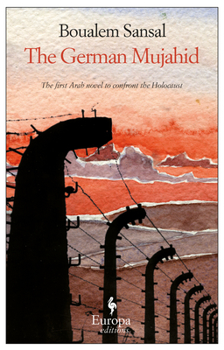The German Mujahid
Select Format
Select Condition 
Book Overview
"The German Mujahid mesmerizes from the very first sentence and commands you not to evade or recoil." Words Without Borders
Inspired by the work of Primo Levi, The German Mujahid tells the story of the Schiller brothers, Rachel and Malrich, born in Algeria to a German father and an Algerian mother, and raised by an elderly uncle in one of the toughest ghettos in France. Rachel is a model immigrant-hard-working, upstanding, law-abiding-while Malrich is drifting, becoming increasingly alienated and angry. When Islamic fundamentalists in Algeria murder their parents, the lives of both brothers are transformed, both by the deaths of their parents and by the shocking truth that emerges afterwards. Rachel, the model son, buckles under the weight of the family revelations. Malrich, the outcast, will have to face the awful truth alone.
Based on a true story and the first Arab novel to confront the Holocaust, The German Mujahid is a groundbreaking novel and a heartfelt reflection on the harsh imperatives of history by one of Algeria's leading contemporary writers.
"Thought-provoking on many levels, perhaps the ultimate moral to this tale is the timeless one of how the sins of the father can affect the next generation." The Austin Chronicle
"A marvelous, devilishly well-constructed novel." L'Express (France)






